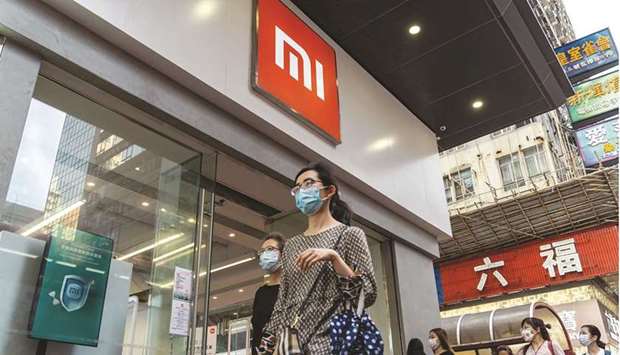Xiaomi Corp will buy autonomous driving technology startup Deepmotion for about $77.4mn, sealing a deal to help further its ambitions of getting into the fast-expanding field.
The company announced the acquisition after reporting better-than-expected results for the second quarter, when a recovery in key markets like India helped it overtake Apple Inc to become the world’s second-largest phone vendor by shipments. Revenue surged 64% to 87.79bn yuan ($13.6bn) in the quarter ended June, surpassing the 85.01bn yuan average of estimates.
Co-founder and chief executive officer Lei Jun is now spearheading a drive to take Xiaomi beyond smartphones. The 51-year-old is personally leading a project to make electric vehicles and the company has pledged an initial investment of $10bn over the next decade in the business. Lei has said the company has deep enough pockets to fund such a project, which requires years of heavy investment in development and manufacturing before the first car can even be sold.
Xiaomi’s shares slid as much as 4.7%, their biggest intraday fall in a month, after investors again punished Chinese tech stocks on Thursday. The stock was weighed down also by lingering concerns about Xiaomi’s growing outlay on EVs.
“Xiaomi’s results were very strong so the reaction appears to be just broader tech weakness,” said Bloomberg Intelligence analyst Matthew Kanterman. “Some concern remains about the degree of investment into Xiaomi’s smart vehicle business, but these are longer-term initiatives and not impacting near-term results.”
The acquisition of four-year-old Deepmotion, which develops driver assistance software, is the latest in a series of moves Xiaomi’s making to delve deeper into a crowded field.
A number of tech giants from Huawei Technologies Co to Baidu Inc have already spent years developing components and auto-driving technologies.
President Wang Xiang said on Wednesday the purchase is intended to help Xiaomi develop Level 4 self-driving technology, which allows full autonomous driving.
“Through this acquisition, we hope to shorten the time to market for our product,” Wang told reporters after releasing results. “We want to speed up our autonomous driving R&D.” While other details about Xiaomi’s car-making efforts remain unclear, it’s kicked off a hiring spree of 500 engineers for the project and has talked to multiple automakers and local authorities for potential partnerships.
The company has also looked at investing in Black Sesame Technologies, a startup that develops artificial intelligence chips and systems for cars, Bloomberg News reported earlier this year.
On Wednesday, Xiaomi reported net income climbed more than 80% to 8.27bn yuan in the three months ended June. It seized the No 2 position globally for the first time during the quarter, in part after shipments in India almost doubled from a year earlier, according to reports from research firm IDC. Lei this month set his sights on reaching the top spot within three years, taking advantage of the waning fortunes of local rival Huawei, whose capacity has been hobbled by US sanctions.

Pedestrians walk past a Xiaomi Corp store in Hong Kong. Xiaomi will buy autonomous driving technology startup Deepmotion for about $77.4mn, sealing a deal to help further its ambitions of getting into the fast-expanding field.
